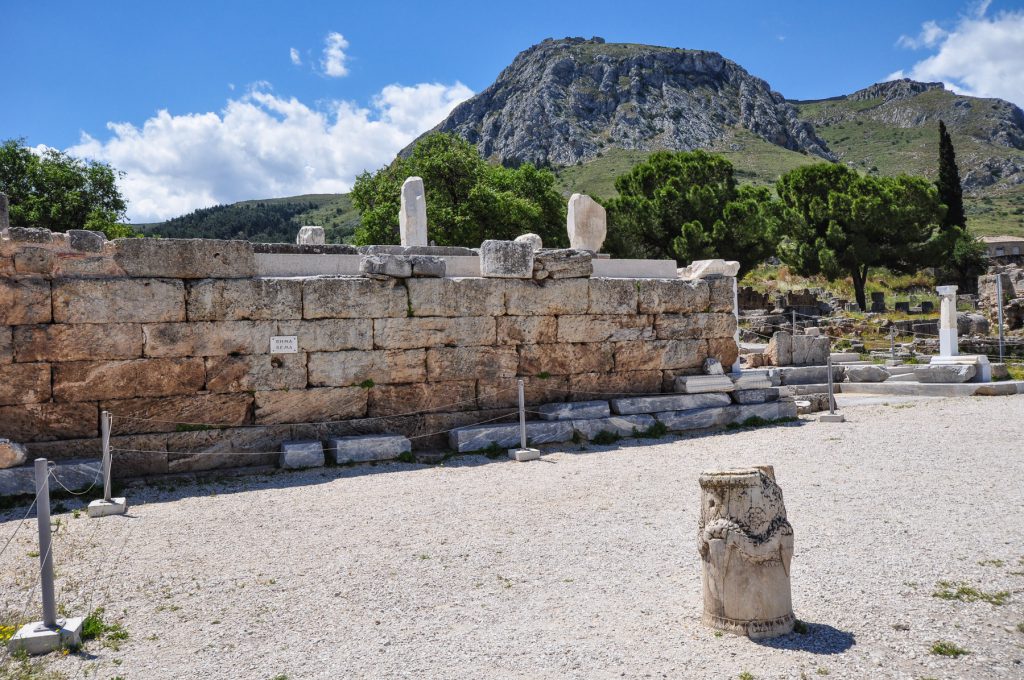Today’s homily is about God’s judgment of us at the moment of our deaths. Do you mind if I start off with a joke? I told this one five years ago, but it’s worth sharing again for those who didn’t hear it. Once, there were two evil brothers. They were rich and used their money to keep their immoral ways from the public eye. They even attended the same church and outwardly appeared to be good Catholics. One day, a new pastor arrived at their parish and saw right through their hypocrisy. When one of the brothers died, the other handed the priest a cheque and said, ‘This is for the new addition to the church, Father. There’s only one condition: At the funeral, you have to say my brother was a saint.’ The pastor took the cheque, promised he would, and quickly deposited it. During the funeral homily, however, the priest didn’t hold back: ‘He was an evil man. He cheated on his wife and abused his family.’ After going on like this for a few minutes, he ended with, ‘But compared to his brother, he was a saint.’
When it comes to God’s judgment, there are two errors to avoid: fearing God the Father in such a way that we avoid Him, or thinking we’re automatically going to heaven. Do we know which of the two we tend towards? Both extremes are spiritually dangerous. To those of you who worry, I want to say, ‘Trust in Jesus.’ To those of you who don’t have a healthy respect for judgment, please take it seriously, because love should always be taken seriously.
Today is the second of a four-part series on reversal of expectations. Last week, we talked about how when we sin sexually, we want to hide from God, but the solution is to go to Him for healing.
Today, we’re going to meditate on the reality of God’s judgment and why it’s good news; then we’re going to see how Jesus is the perfect spiritual coach Who prepares us for judgment. The goal is that we take judgment seriously and understand that Jesus is actually on our side!
1) In the Second Reading, St. Paul writes, “For all of us must appear before the judgment seat of Christ, so that each may receive recompense for what he or she has done in the body, whether good or evil” (2 Cor 5:10). Jesus taught so many times about His judgment: When we die, He said we’ll be judged on how we’ve treated especially the poor, sick, hungry, and the stranger (Mt 25:31-46). He said we’ll be judged on how we respond to Him and His commandments (Mt 10:15; Jn 5:24). Why? Because God is love. When we choose to love Him and others, we’re united to Him. When we don’t, we separate ourselves from Him.
Six weeks ago, we mentioned how our own conscience judges us. We know, for example, that lying is wrong. Now, sometimes we’re lenient on ourselves, but rarely on others. In 2005, a youth leader told me how he and his friends saw the horror film Hostel. In the film, two tourists are lured by beautiful women and wake up in a torture chamber. After absolute hell, they manage to escape, get into a car, and when they happen to see the beautiful women who tricked them walking across the street, they run them over, and everyone in the theatre cheered. Why? Because people want justice.
Fr. Robert Spitzer, S.J., points out that stories like Harry Potter, Lord of the Rings, and Star Wars are so popular because every human has archetypes in the unconscious about the cosmic struggle between good and evil (Finding Happiness, 61, 122). We know that our life is involved in this struggle, and we’re being judged on which side we take.
Finally, whenever we have arguments about people being late, not doing their job, not treating each other well, we’re expecting a certain standard of behaviour (C.S. Lewis, Mere Christianity, 3). God does the same.
Why is this good news? Because it tells us that He cares about good and evil. He loves us infinitely, and wants to know if we’ll love Him in return.
It also forces us to face reality: We’re responsible for everything we’ve chosen in our lives. We were created for a reason and should live up to our potential.
At the moment of death, there is no second chance. Did we respond to Jesus’ love? We choose heaven or hell depending on how we respond to His love. Of course, there’s purgatory, thank God, so we don’t have to be absolutely perfect when we die, but the minimum would be: Did I respond to Jesus in faith, repent of my sins, and seek His grace in the Sacraments?
2) St. Paul talks about Jesus’ judgment seat (here’s a picture of the ruins of the judgment seat before which Paul was tried in Corinth:
But the unique quality about Christ is that, even though He judges us, He actually enters into our lives to help us! Paul writes, “So we are always confident, even though we know that while we are at home in the body we are away from the Lord — for we walk by faith, not by sight. Yes, we do have confidence… So whether we are at home or away, we make it our aim to please him.” Why is he ‘confident’? Because, in the prior verse, he says that Jesus offers the Holy Spirit to dwell in and help us!
On Easter Sunday, I told you about some donors who live across Canada and are supporting our mission. For weeks, I’ve been working with them to develop a strategic plan for our parish. A part of me is very intimidated by their judgment: I have no skills in this area and they’re experts.
However, they’re not just judging and giving me feedback, they’re coaching me. At one point, one of them looked at my proposal and said, ‘I like it. What I’m trying to do is help you improve it so that I can bring it to other potential donors.’ When he said he liked it, however, I got the feeling that he was only half-convinced. But that was okay! I felt so inadequate that if he had lied to me, I would have accepted his statement until he could show me my lacunae.
Jesus likewise doesn’t just tell us what’s right and wrong and say, ‘Figure it out yourselves!’ He helps us! And, imagine if those donors were actually to operate in me with their abilities. That’s what the Holy Spirit does: He dwells inside our souls so that we can love like Him. This is why we have confidence before Christ’s judgment.
Let’s apply this whole teaching to three things: 1) Suffering. Every trial through which we go in life is a kind of test, but it’s not given so that we fail; it’s allowed so that we pass. The reality is: We’re at our best when things count. We run our hardest when there’s a race; we try our best during an interview. Think about this: Do people tend to dress better when they’re dating or after they’re married? The reason is because we’re trying to show our best to someone we love. Yet, there’s an opportunity here: Once we’re married, we can renew our love by treating our spouse as when we were dating!
This applies to the Sacraments. The real test is not if parents go to Mass every Sunday before their child is baptized, the real test is after. The real test is how many Grade 2 and 7 students go to Mass after First Communion and Confirmation. As mentioned a few weeks ago, we need to work on this. I don’t bring this up to shame people. Because of today’s theme, I’m now changing how I see our requirements for Baptism: The reason we ask people to go to Mass every Sunday before their Baptism is so that they can see that they can do it!
2) Confession. From now on, I hope we can start seeing that God and the priest are on our side. Once, when I was a seminarian, I went to Confession with Fr. Lawrence Donnelly, confessed my sins, and then he said, ‘Well, we thank God for this good Confession, and for your penance…’ I thought, ‘Wow, that’s a beautiful statement. I’m going to use that when I become a priest.’ There was nothing particularly good about my Confession, so I realized that he probably said that to everyone who comes to him. But it’s still beautiful, because even though, in a true sense, he’s a judge, he’s more of a father who’s helping me.
3) The priest can see you from up here! I think some people believe: The priest can’t see me nodding off. That’s not true: If you can see our face, we generally can see yours! I tell you this because you may not know that your family, co-workers, and strangers see a lot of what you’re doing. And, when we know people can see us, we tend to act better, which is good!
There’s a balance we’re trying to strike: Jesus is demanding because love is demanding, but no one is more merciful. We should take His judgment seriously, but without excessive fear. He became man out of love for us, died and rose to forgive our sins and give us life, and offers us the Holy Spirit so that we can pass the test!


